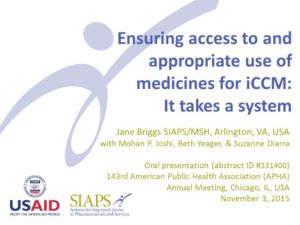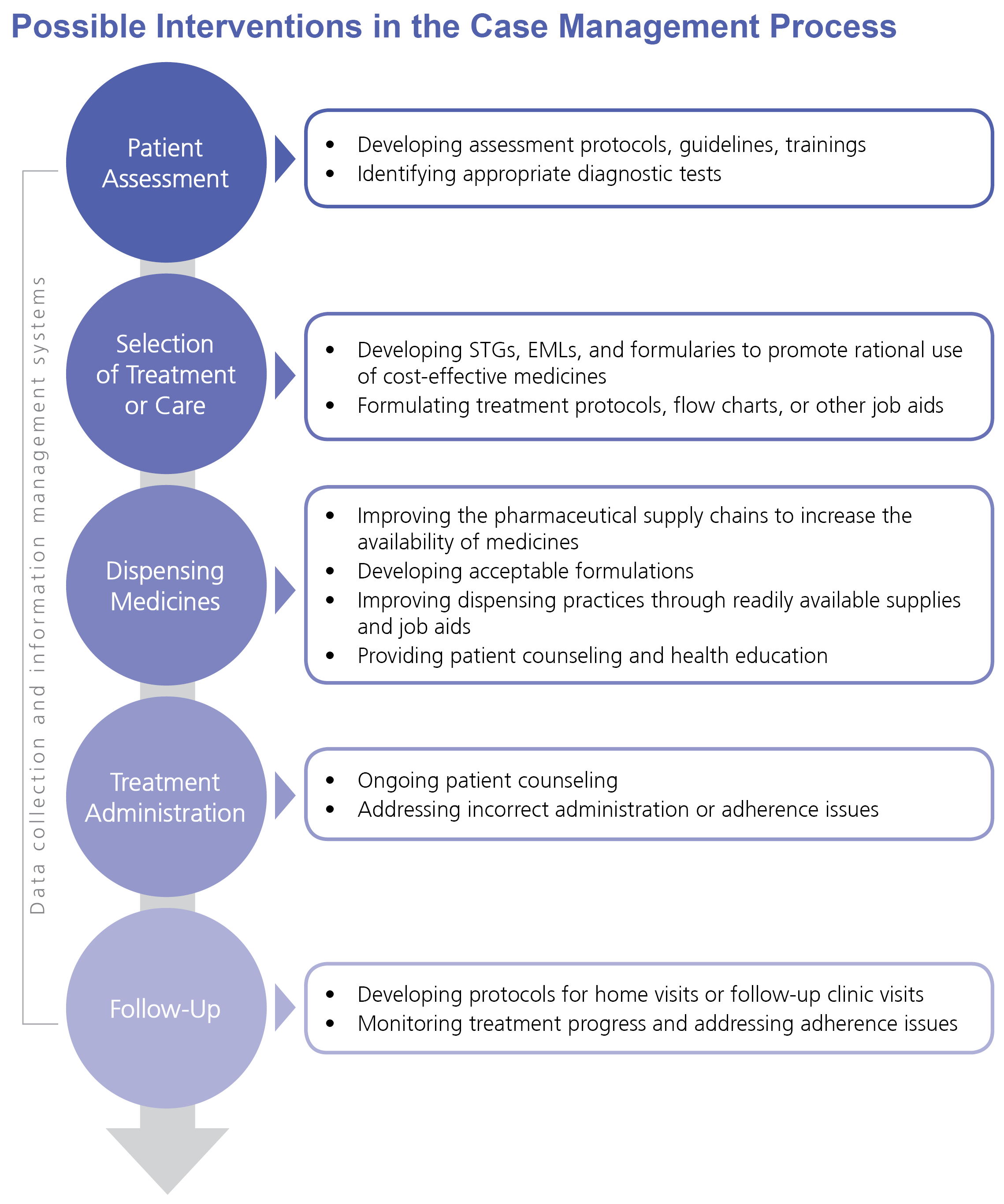Case management refers to the planning, coordination, delivery, and review of health services provided to an individual in a health care facility or the community. Effective case management strengthens patient-centered care by involving a proactive, supportive, and multidisciplinary team of health care professionals. Proper case management of a disease or health condition helps maintain the therapeutic efficacy and safety of medicines, promotes high-quality care and cost-effective outcomes, and helps contain drug resistance.
The SIAPS Approach
SIAPS and its predecessor programs worked in resource-limited settings to develop solutions at all stages of the case management process in public- and private-sector settings and at both district facilities and national hospitals.
- National level: SIAPS supported the revision of essential medicines lists and helped to develop and disseminate standard treatment guidelines
- Facility level: SIAPS trained health care workers in the use of treatment protocols, appropriate dispensing and counseling practices, and medication reviews to measure the degree of adherence to treatment guidelines
- Patient level: SIAPS conducted studies to measure and improve adherence, particularly of ART, and worked collaboratively to design and disseminate information and educational materials to promote correct medicine administration and dosing
Community Case Management

Community case management (CCM) is a strategy recommended by WHO and UNICEF to promote the timely detection and treatment of the three major diseases affecting children under five: pneumonia, diarrhea, and malaria. As the name implies, CCM involves individuals from the community, known as health extension workers, in case management activities. These health extension workers undergo an intense training course that allows them to effectively manage common health conditions under close supervision from peers or personnel from a health facility.
SIAPS supported the implementation of CCM both globally and at the country level, with a particular focus on supply chain considerations for effective CCM. SIAPS also provided technical assistance to improve other aspects of case management, including rational medicine use and the development of protocols and training materials.
With the added pressure that the HIV and AIDS epidemic has placed on both health care providers and health facilities, community health workers provide critical support in extending the reach of patient care. Increasingly, community health workers are enlisted to help with case management of palliative care, proper management of medicines, detection of adverse effects, and overall quality assurance and patient safety. SIAPS worked to ensure that these emerging areas were addressed as it supported best practices for case management in resource-limited settings.


